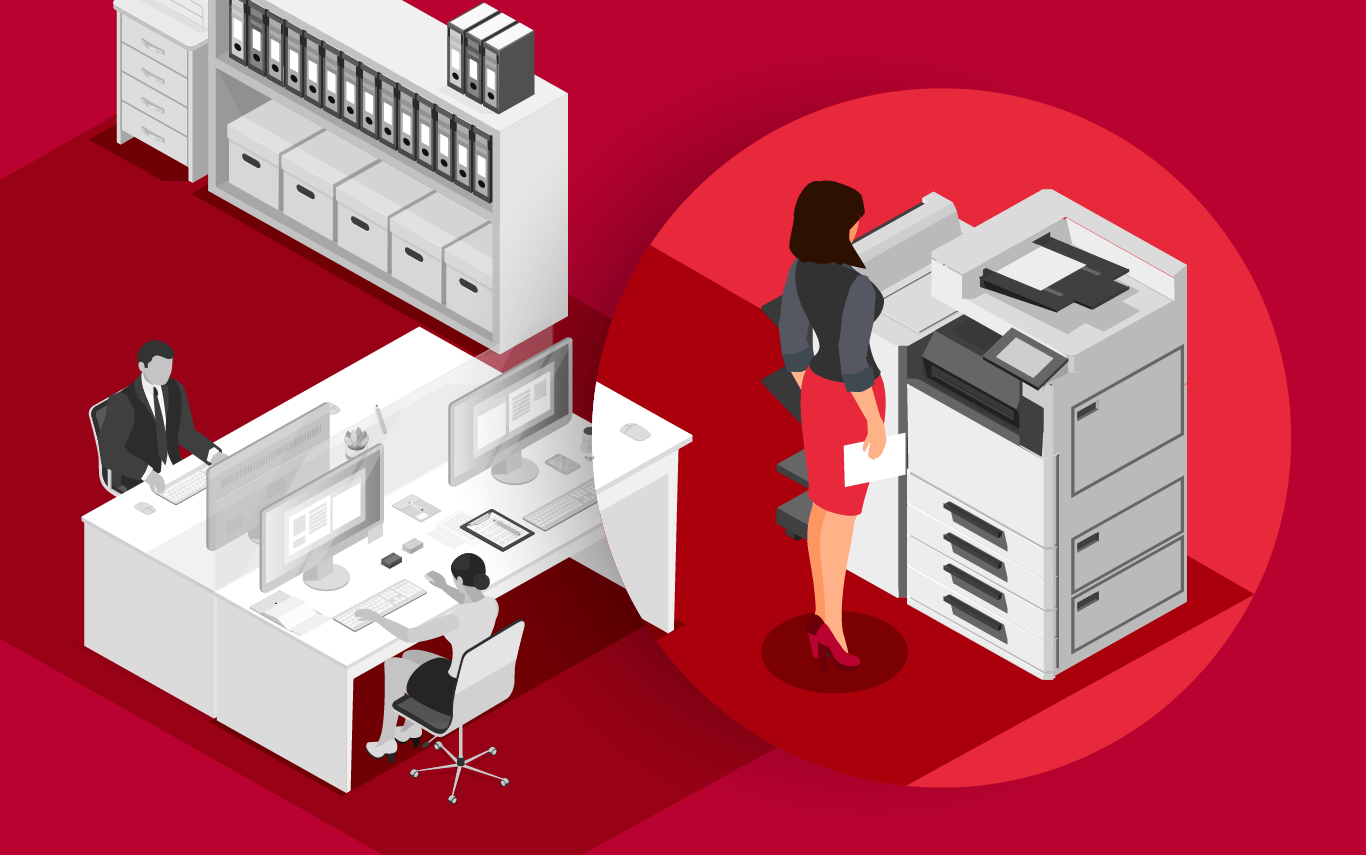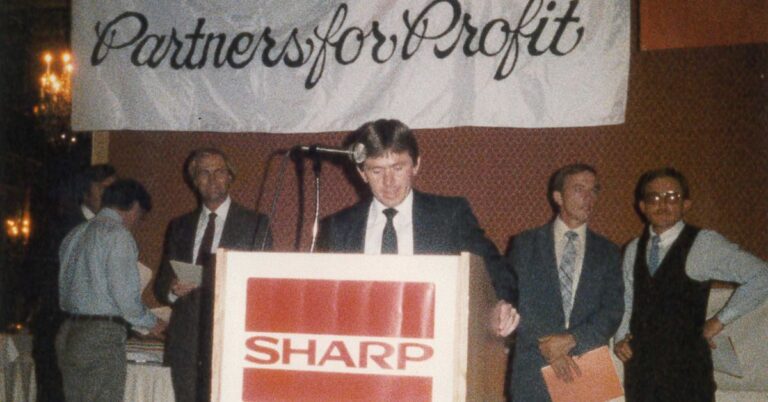The Copier Renders Carbon Paper Obsolete
When Les Olson sold his first copier, there were people who made their living selling carbon paper. Secretaries pounded away on manual, and then Selectric typewriters with multiple layers of carbon paper and type paper to make multiple copies of documents. With the invention of the copier, the carbon paper salesman was put out of business. The process was much like a camera with a lens and latent images; it revolutionized the flow of communication in the office and throughout the whole business community. It moved from designated, special rooms to a central place in the office; at this time however it could not network. For years a small business was “official” when they had their first copier.
From Typewriter to Word Processor
In the meantime, the typewriter gave way to dedicated word processors: essentially these were glorified typewriters with keyboards and floppy discs that output to impact printers. This word processor was later replaced with multi-function computers that used software like Word Perfect and later Word. The impact printer gave way to laser printers with better output and the ability to produce images and multiple type styles. The office became networked, accelerating and enhancing workflow. Meanwhile however, the copier remained the same, churning out billions of pages in its customary fashion.
Copiers Go Digital
Times change and technology evolves, and with it the whole process of copying became digitized. Now the copier couples an advanced, high-speed scanner with a printer, linked to the office network. The device has moved from its former isolation to become a networked on-and-off ramp of ideas.
Today, MFPs can produce high quality prints at a speed and affordability only dreamed of in the past, but more importantly, it can be used to scan images and transmit them to many places on the network and beyond. They now have strong computing power and use software to augment and manage data; quite literally, they are the off ramp for distributing information from the network. Although MFPs do function in a networked, paperless way, there often is a need for the tactile experience of holding a document and not just viewing an image on a screen; the need for print materials is as pertinent as ever.
Last year LinkedIn conducted a survey of over 7,000 professionals worldwide regarding office equipment and workplace trends that they felt were the most likely to disappear in the next five years.
Here are the top 10 on the list:
- Tape recorders
- Fax machines
- The Rolodex
- Standard working hours
- Desk phones
- Desktop computers
- Formal business attire like suits, ties etc.
- The corner office for management/executives
- Cubicles
- USB thumb drives
Note that the copier was not listed.
In short, the MFP is more useful and more central to the flow of information in the office than ever before, making it a relevant business tool. We do live in a digital, connected world, and it is easy to see that the impact of technology will only grow in our professional lives.











